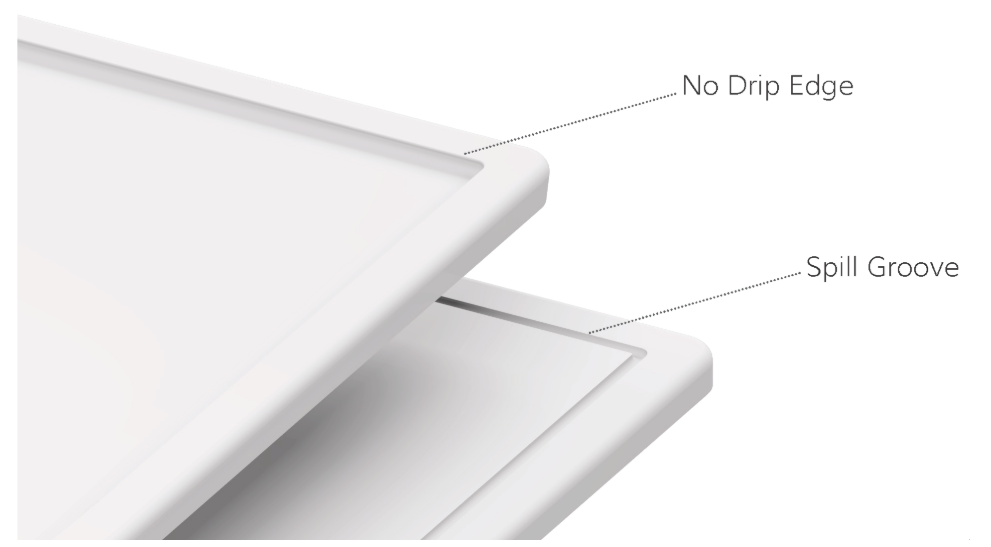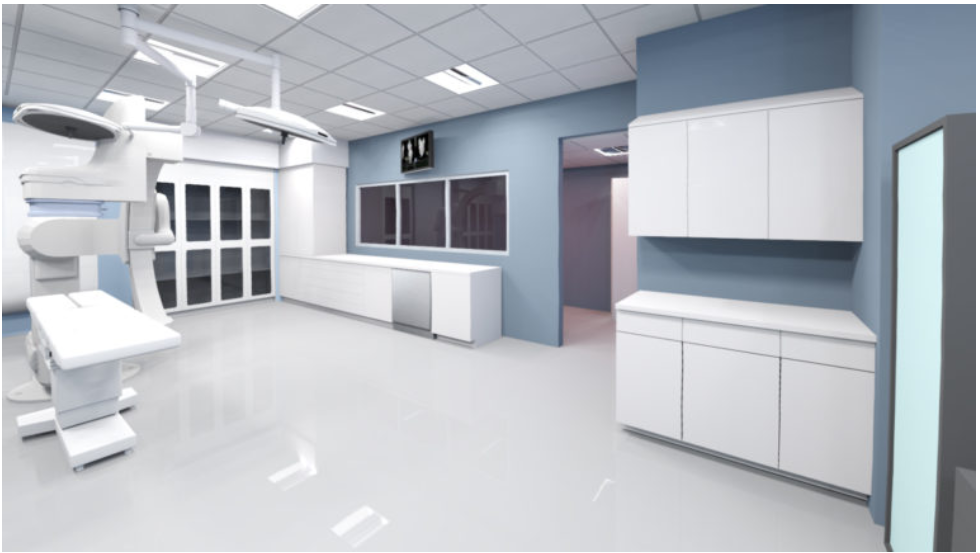You Probably Never Thought About It
You might be thinking, “how on earth does casework have anything to do with infection control?” You wouldn’t be crazy for thinking that. You may remember Unicell used silver impregnated finishes about 30 years ago, but those never really took off. Once it’s explained, it makes perfect sense.
The thing is, hospitals care a lot about infection control. According to the CDC 1.7 million people acquire health-care associated infections (HAI’s) annually. These infections lead to around 99,000 people dying every year from HCIA’s as well.
To put it mildly, hospitals care a lot about HAI’s and they are doing everything they can to reduce them.
The average per-patient cost for a secondary infection is $21,000. Just using simple math, that turns into a $357M problem for hospitals in the US. And that’s not all, hospitals are also hurt through patient satisfaction rates when HAI’s are recorede and this affects their reimbursement rates.
Introducing Futrus
To put it mildly, infection control matters to hospitals. So let’s take a look at how casework can help with this challenge.
To put it mildly… infection control matters.
Clearly, infection control is important for hospitals. So how does casework relate to infection control?
Futrus is a solid-surface casework, systems and furniture manufacturer. They have over 37 years of experience fabricating Corian solid surface products. For those of you unfamiliar with solid surface is made of mineral dust mixed with a variety of plastics and resin.
Futrus has a patented fabrication system that is not found in any other solid surface manufacturer. This patented system has a few advantages. Such as:
• Ability to construct structurally-stable solid surface solutions on a large scale
• Design flexibility
• Greater product durability and life-cycle
• Improved impact resistance
• Ability to decrease solid surface sheet thickness (and thus cost and weight)
• Complete moisture resistance
• Greater sustainability
Solid surfaces, for all their advantages, are prone to cracking and structural failure if they aren’t used with a structural system. Futrus’ patented design allows for a structurally-stable, long-lasting solid surface. Other solid surface manufacturers use a substrate of some kind that is not structurally-stable, hygenic, or moisture resistant and it doesn’t allow for expansion and contraction, leading to cracking.
Infection Control
Put simply, bacteria doesn’t grow on Futrus casework. This dramatically minimizes the risk of infection spreading through contact with contaminated surfaces.
Take this over-bed table, for example.
This Corian table top is entirely bleach cleanable for maximum infection control.

As you can see, the solid surface has no seams. This means that no bacteria can hide and grow. The solid surface material is also non-porous, so it doesn’t get stained and bleach will not discolor it over time.

Futrus Casework System

The Futrus Casework System is designed for maximum infection control. All interior and exterior surfaces are made from seamless, bleach cleanable Corian which is certified to resist microbial growth and reduce HAI’s.
Futrus doors can be manufactured with a patented coved edge that makes cleaning easier and more efficient, again contributing to reducing HAI’s.
Futrus doors provide a far more durable and low maintenance alternative to traditional doors made of wood, laminate, or vinyl-wrapped substances, including stainless steel. In addition, anti-microbial properties of Corian are ideal for a hospital setting and can perform even better than stainless.


In addition to the Corian casework, Futrus also has a Hybrid solution that combines Corian doors and laminate or thermofoil cases, still delivering a bleach cleanable solution while providing a higher value product than traditional casework. This is ideal for patient rooms, long-term care, and exam rooms.
Room Turnaround
In addition to preventing infections, hospitals are also concerned with the amount of time that it takes to turn around a room. Think about operating rooms or emergency rooms: every minute spent cleaning/disinfecting a room and preparing for a new patient is time that could be spent on patient care.
Using solid surface materials from Futrus decreases the amount of time required to disinfect and clean a hospital room between patients.
Let’s do a comparison between materials. In a standard hospital room it’s likely that the casework is either laminate or stainless steel. Neither of these materials are anti-microbial, this means that if bacteria is present, it will grow and spread on these surfaces.
In addition, neither of these materials are seamless, there are cracks all over the place on stainless or laminate casework. The seams between the countertop and the backsplash can hide bacteria and allow it to spread. There are seams between cabinet units or where countertops were connected, these also hide and protect bacteria.
Then there’s bleach. Bleach is highly corrosive to stainless steel and cannot be used to clean it. Similarly, bleach will damage and discolor laminate countertops. Think of those spots you always see under the soap dispenser in a public bathroom. Long term cleaning will negatively affect the appearance, but can also damage the surface and create an even greater likelihood of bacterial growth.
The Solid Surface Advantage
In multiple places throughout this post, we’ve referenced the fact that solid surface is “bleach cleanable and seamless.” Knowing what you now know about stainless steel and laminate, this makes more sense.
The fact that solid surface is seamless means that bacteria cannot get trapped in the small crevices there’s nowhere for it to hide. You know those cracks between the edge of your stove and the counter next to it? Think about how much food and gunk gets trapped there. In many cases you can’t even get to it, so you just leave it. A countertop seam acts exactly the same for bacteria, imagine wiping a cloth over that seam, think about how much food stays in place when you do that on your stovetop. You have to scrub and pick and carefully clean it to make sure you get the whole area cleaned.
Seamless countertops mean that in one wipe you can clean the entire area. There are no places for bacteria to hide. Instead of scrubbing seams and carefully cleaning the cracks, it simply takes one wipe and it’s clean.
The same goes for the ability to use bleach. Bleach contains the chemical hypochlorite. Hypochlorite attacks and deactivates specific proteins that bacteria need for survival. This is why bleach is one of the most powerful anti-bacterial agents available. Bleach is too toxic to use on most surfaces, however, meaning you have to rely on less potent cleaners. This leaves more room to bacteria to service.
Solid surface can not only be cleaned with bleach, you can leave bleach to sit on solid surface without harming it. This allows surfaces to be completely disinfected much faster and much more reliably than other surfaces.
All of this means that hospital rooms can be cleaned faster and more thoroughly when fitted with solid surface furniture.
What You Can Do
Hospitals are always on the lookout for ways to increase infection control and decrease room turnaround time. Futrus offers a simple and elegant way to influence both of those metrics at the same time, in addition to offering a clean, long-lasting, and aesthetically pleasing environment.
If you haven’t worked with Futrus yet, consider including them on your next hospital project. You and the medical facility will be glad you did.
If you’d like to learn more about Futrus directly from the horses mouth, click THIS LINK.